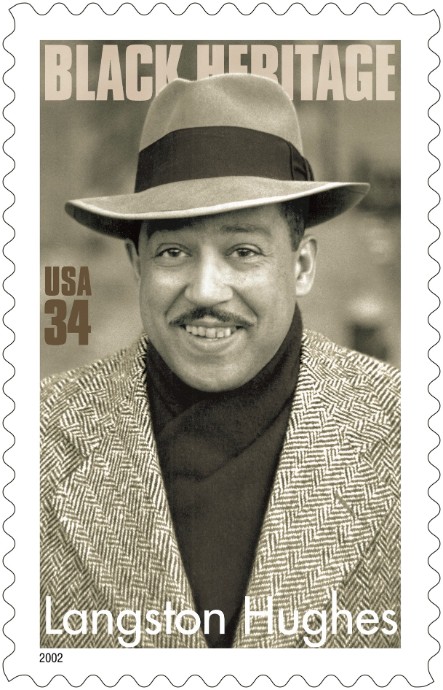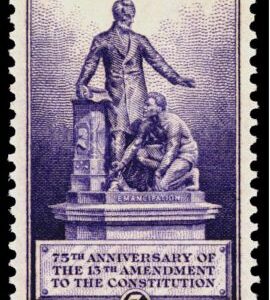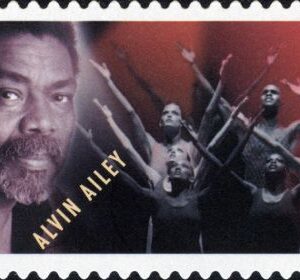Description
When Sue Wears Red
Langston Hughs – 1901-1967
her face is like an ancient cameo
Turned brown by the ages.
Come with a blast of trumpets,
Jesus!
When Susanna Jones wears red
A queen from some time-dead Egyptian night
Walks once again.
Blow trumpets, Jesus!
And the beauty of Susanna Jones in red
Burns in my heart a love-fire sharp like a pain.
Sweet silver trumpets,
Jesus!
The Langston Hughes stamp is a commemorative stamp issued by the United States Postal Service in 2002 as part of its Black Heritage Series. The stamp features a portrait of Hughes, an African American poet, novelist, and playwright whose writings explored African American identity and culture.
The stamp was designed by Kadir Nelson and was issued as a 34–cent stamp. Langston Hughes was born in 1902 in Joplin, Missouri and his family moved to Kansas soon after. He began writing poetry at an early age and attended Columbia University in 1921. His works began to gain attention in 1924 when he wrote the poem “The Weary Blues,” which earned him the first place in the Opportunity magazine literary contest.
His works often featured themes of African American life and experience, especially within the African American community in Harlem, New York. Hughes was known for his contribution to the Harlem Renaissance, a period of time in which African American culture and literature flourished. The background of the stamp features an illustration of a line from Hughes‘ poem “The Negro Speaks of Rivers,” which reads “My soul has grown deep like the rivers.” The line is meant to represent the depths of the African American experience and the strength of the African American spirit.
The stamp was released to commemorate the centennial anniversary of Hughes‘ birth and to honor his work and legacy. The Langston Hughes stamp is a fitting tribute to a literary giant who has left a lasting impression in American culture. His works have inspired generations of writers and continue to be an important part of the American literary canon. The stamp is a reminder of Hughes‘ enduring influence and his commitment to exploring African American identity and culture.





Reviews
There are no reviews yet.